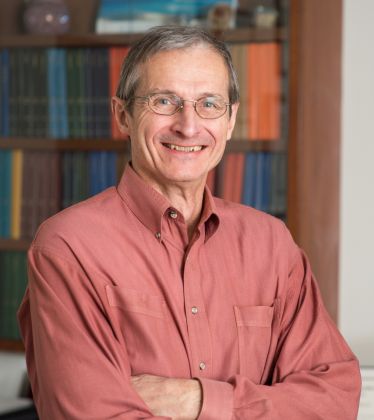RIVERSIDE, Calif. (www.ucr.edu) — Richard Schrock, a Nobel Prize-winning chemist and UC Riverside alumnus, will join the faculty in UCR’s College of Natural and Agricultural Sciences in September 2018. He will be the inaugural George K. Helmkamp Founder’s Chair in Chemistry, named after one of the founding faculty members of UCR’s Department of Chemistry.
Schrock, who graduated with a bachelor’s degree in chemistry from UCR in 1967, won the 2005 Nobel Prize in chemistry while he was a faculty member at the Massachusetts Institute of Technology (MIT). He was awarded the prize for the development of a catalyst for a reaction now used daily in the chemical industry for the efficient and more environmentally friendly production of pharmaceuticals, fuels, synthetic fibers, and many other products. Schrock shares the prize with Yves Chauvin of the Institut Francais du Petrole and Robert H. Grubbs of Caltech “for the development of the metathesis method in organic synthesis.”
“We are honored to welcome Professor Schrock back to campus as a member of our faculty,” said Cynthia Larive, UCR provost and executive vice chancellor. “As a Nobel laureate and alumnus, he serves as an inspiring role model and affirms that there are no limits to what UCR students can accomplish. Schrock’s choice to join UCR also emphasizes our growing status as a national leader in scientific research and discovery.”
Born in 1945 in Indiana, Schrock’s love of chemistry began at age 8, when his brother gave him a chemistry set. The budding scientist created a small laboratory in his mother’s pantry, which he stocked with test tubes and flasks purchased from a mail-order catalog, using the earnings from his morning newspaper route.
His interest in chemistry grew in high school—as did his home laboratory, which now included a few potentially dangerous chemicals. While there were no serious mishaps, Schrock recalls setting fire to a rug as a teenager, which brought the local fire department to his door.
In 1959, Schrock moved with his family to San Diego, where he completed high school and began his studies at UCR. He chose Riverside—then a relatively young campus—because the smaller school offered him a chance to do independent research as an undergraduate.
“My experience as an undergraduate at UCR in research in the laboratory of James Pitts and the quality of the classes in chemistry prepared me for my Ph.D. experience at Harvard. I look forward to returning to UCR for a few years to give back some of what it gave to me,” Schrock said.
Influenced by Jerry Bell, a UCR chemistry professor, Schrock applied to graduate school at Harvard University, where he received his Ph.D. in 1971. He then spent a year as a National Science Foundation postdoctoral fellow at Cambridge University, followed by three years at the Central Research and Development Department of E.I. duPont de Nemours and Co. He joined the faculty at MIT in 1975, where he was named the Frederick G. Keyes Professor of Chemistry in 1989.
At UCR, Schrock will mentor junior faculty, teach, and share his experience with students.
Kathryn Uhrich, dean of the College of Natural and Agricultural Sciences, said Schrock “brings to UCR a vast trove of pioneering scientific work and a keen interest in teaching undergraduates.”
“We are deeply honored that Dr. Schrock has joined our faculty,” Uhrich said. “It is a testament to the quality of our faculty, students and staff, and how far this college and university have come. The fact that Dr. Schrock studied chemistry as an undergraduate student at UCR and is now returning to his alma mater after such an impactful career, makes this especially significant.”
Jingsong Zhang, a professor of chemistry and chair of the chemistry department, said Schrock’s groundbreaking research and expertise will be a tremendous addition to the department.
“Professor Schrock launched his career in chemistry as an undergraduate at UCR and his return will greatly inspire our students and boost our research program,” Zhang said.
Schrock is a member of the American Academy of Arts and Sciences and the National Academy of Sciences, and a Foreign Member of the Royal Society. He was associate editor of Organometallics for eight years and has published nearly 600 research papers.
At MIT, he was a Camille and Henry Dreyfus Teacher-Scholar (1978-1983) and a recipient of an Alfred P. Sloan Fellowship (1976-1978). In 1996, he received the American Chemical Society Award in Inorganic Chemistry for his efforts to develop cleaner and more efficient ways to manufacture chemicals. In addition, he has received the ACS Award in Organometallic Chemistry (1985), the Harrison Howe Award of the Rochester ACS section (1990), an Alexander von Humboldt Award (1995), the Bailar Medal from the University of Illinois (1998), an ACS Cope Scholar Award (2001), and the Sir Geoffrey Wilkinson Medal (2002).
